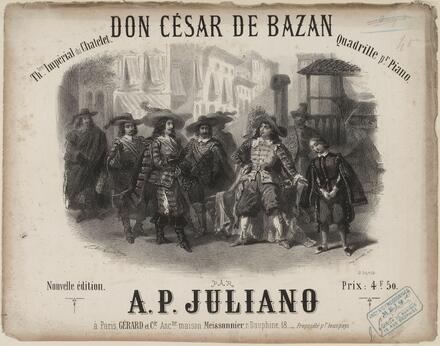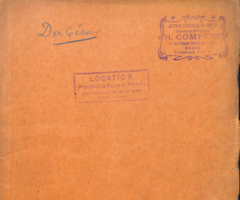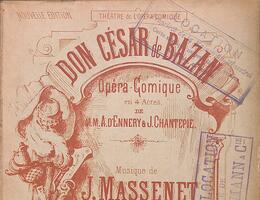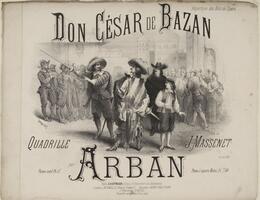Don César de Bazan

Opéra comique in 4 acts premiered (in a three-act version) at the Opéra-Comique (Paris) on 30 November 1872. Version revised and re-orchestrated by Massenet in 1888. After Don César de Bazan by Adolphe d’Ennery and Philippe Dumanoir (1844), drama in five acts inspired in turn by Victor Hugo’s Ruy Blas (1838).
After Le Domino noir by Auber (1837) and Le Toréador by Adam (1849), the Spanish-flavoured espagnolade became a source of inspiration for all French musicians, including Bizet, Chabrier, Ravel and Debussy. Massenet was no exception when he accepted the libretto of Don César de Bazan. In the Spain of Charles II, Don César rushes to the aid of young Lazarille and challenges the captain who had been ill-treating the child to a duel. As a royal edict imposes the death sentence on any man fighting during Holy Week, Don César is led away to prison. He narrowly escapes execution and avenges the king, who had been the victim of a plot and who shows his gratitude by appointing him Governor of Grenada. Ennery and Chantepie produced a libretto from the play of the same name, stripping out any overly long speeches and descriptions. The plot of the opera is clear and dynamic, making it a perfect source of inspiration for the young, thirty-year-old composer. Massenet’s score is full of fandango, bolero and seguidilla motifs and demonstrates great mastery of the different dramatic registers, confirming the composer’s early predilection for opera. At its premiere, the work was only a limited success, even though the cast included a trio of remarkable artists: Célestine Galli-Marié (Lazarille), Paul Lhérie (Charles II) and Jacques Bouhy (Don César) who, three years later created the roles of Carmen, Don José and Escamillo. The score for Don César de Bazan, which was lost in the fire at the Salle Favart in 1887, was entirely rewritten by Massenet in 1888. He reworked the Sévillana, initially scored for orchestra and very popular with audiences, into a particularly acrobatic aria, well-loved by coloratura sopranos.




